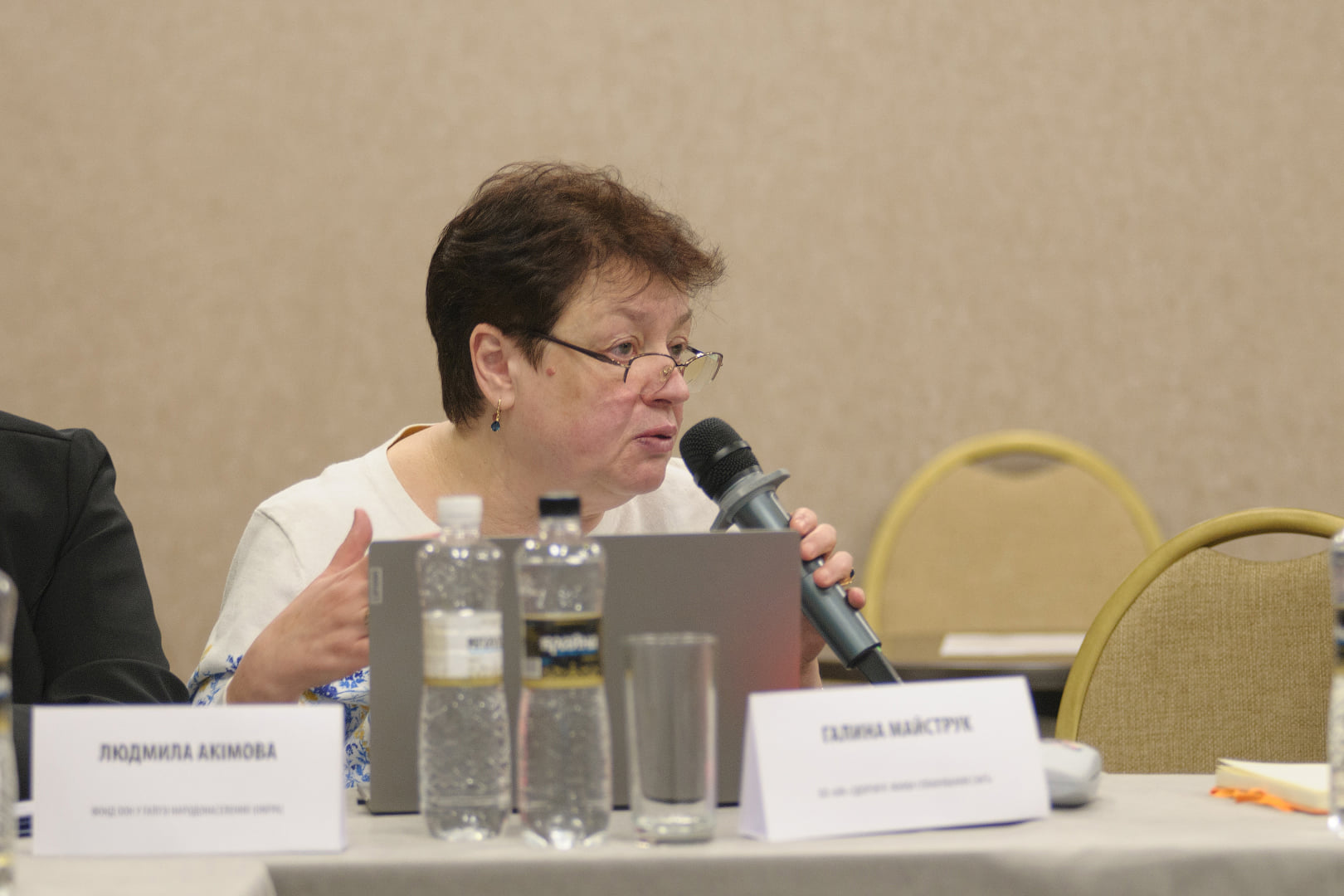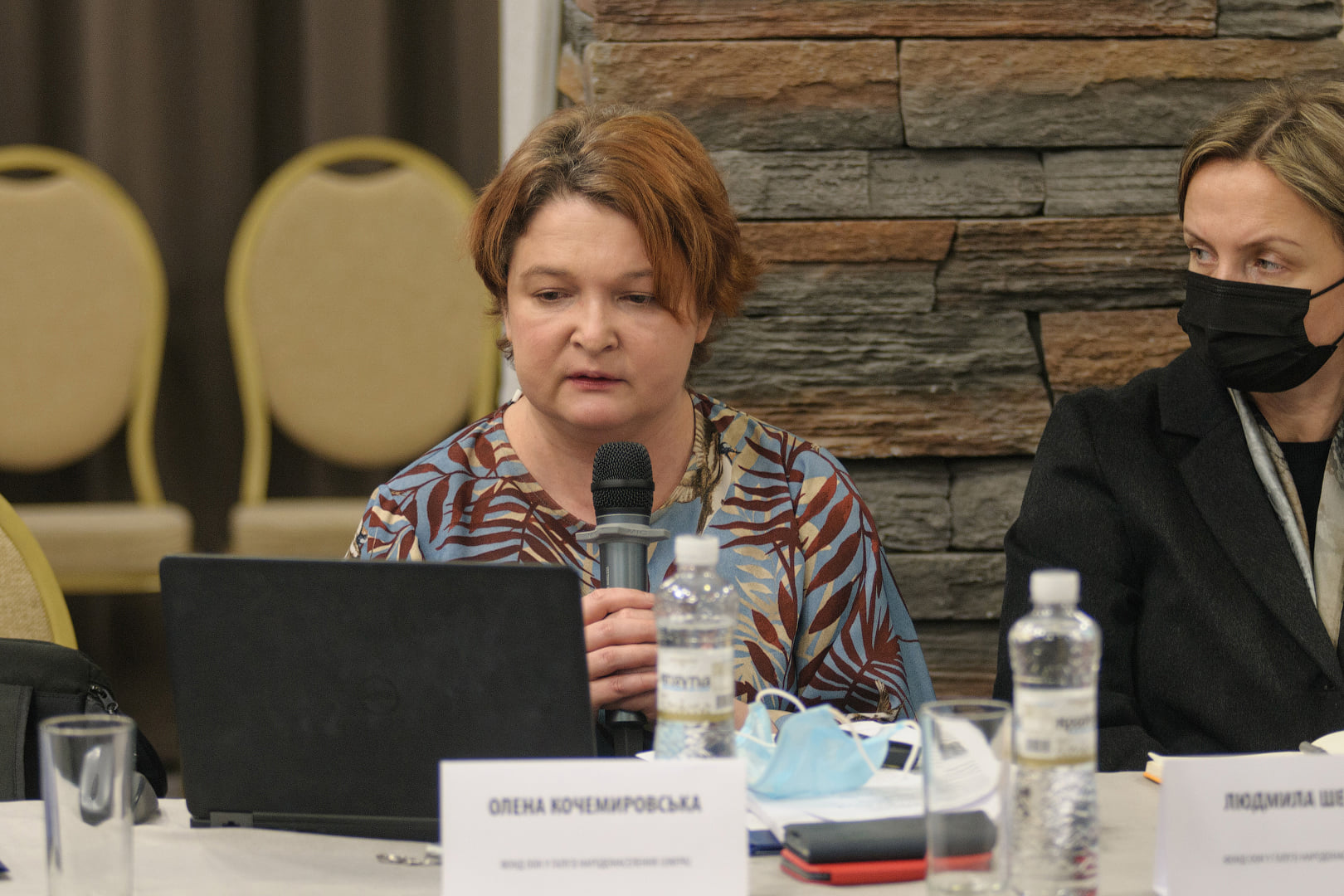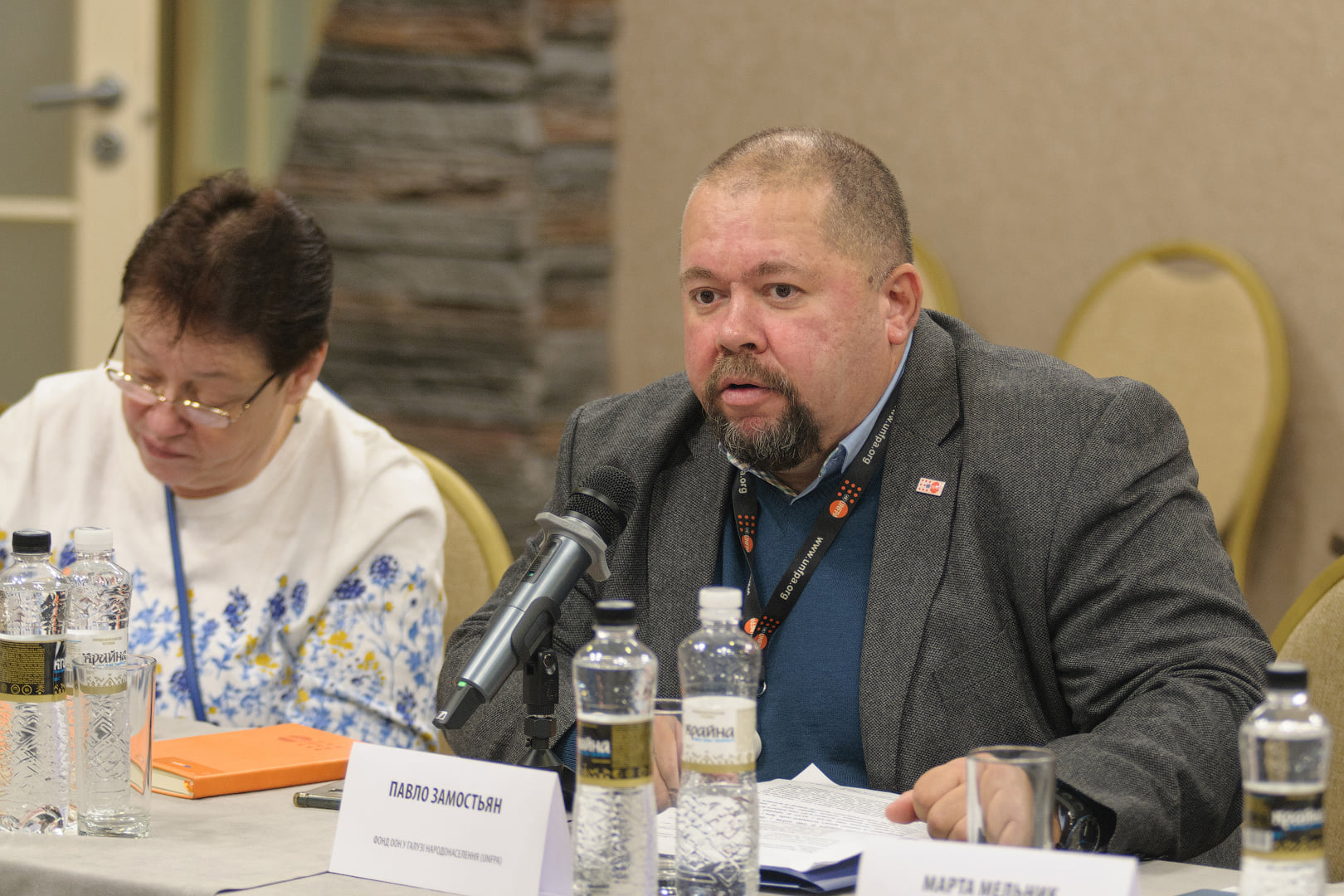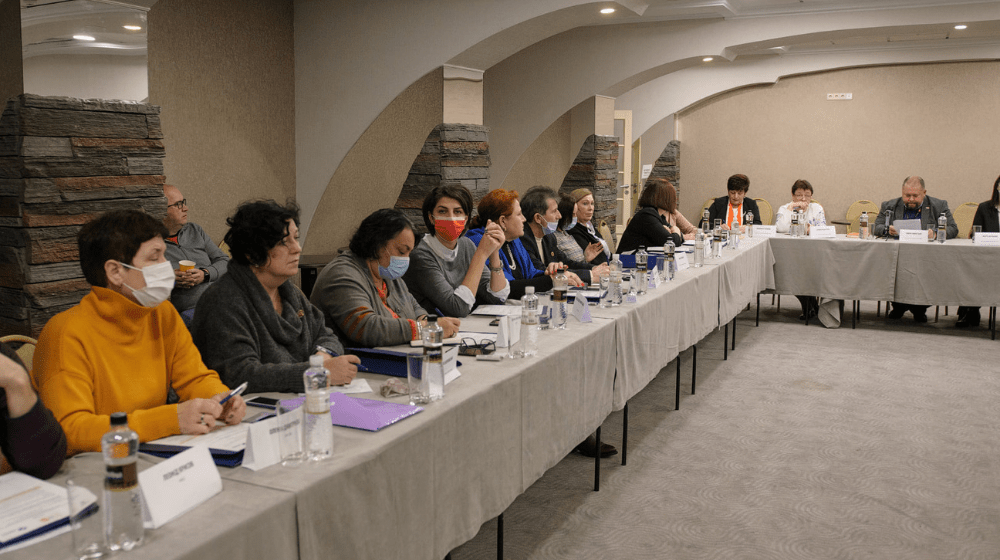Counselling and Rapid HIV Testing of Victims of Domestic Violence round table was held. This is the final event of the Improving the HIV Counselling and Testing Processes for Clients of Programmes of Social and Psychological Assistance to Violence and Abuse Survivors project implemented by Women’s Health & Family Planning Charity Foundation with the support of UNFPA Ukraine.
Representatives of the Department of Public Health and Microbiology of the Ministry of Health of Ukraine and the Public Health Centre of Ukraine, the Directorate of Social Services Development and Protection of Children’s Rights of the Ministry of Social Policy of Ukraine, Positive Women NGO, Alliance for Public Health Charitable Foundation, Convictus Ukraine, Department of Health of Odesa City Council, experts of specialised healthcare institutions of Odesa region and social services centres involved in the project, representatives of the United Nations Children’s Fund (UNICEF Ukraine) and the Joint United Nations Programme on HIV/AIDS in Ukraine (UNAIDS in Ukraine) joined the discussion.

Halyna Maistruk, Chairman of the Board of the Women’s Health and Family Planning, presented general data on the results of the project, while Liudmyla Akimova, Project Coordinator in the Odesa region, and Aliona Yukhimchuk, Director of the Sofia Rehabilitation Centre of The Public Movement “Faith, Hope, Love” NGO, shared their experiences of the project implementation and real cases of female survivors of abuse and violence.

Olena Kochemyrovska, UN Population Fund Expert in Ukraine, emphasised ensuring cooperation and coordination in the field of the response to domestic and gender-based violence, pointing out the main directions of public policy to address this problem, elements of response to domestic/gender-based violence, key elements of the system of providing psychological and social services to victims, as well as challenges for Ukraine to respond to this issue.
Participants agreed that while previously, the main groups at risk of HIV infection were injecting drug users, sex workers and MSM, victims of domestic violence should also receive HIV screening, VCT services and follow-up, regardless of whether they have a long history of abuse or have only experienced it once. The same applies to the children of victims: it is just as important to monitor their HIV status and provide them with appropriate services.
According to Liudmyla Lehkostup, National Coordinator for HIV Testing at the Centre for Public Health of the Ministry of Health of Ukraine, the projected number of new HIV cases among women of reproductive age (estimated by 2025) will remain at the same level, and the main route of transmission remains sexual intercourse. And given the prevalence of sexual abuse and the fact that the risk of infection for women who experienced sexual abuse is twice as high as for men, screening programmes for victims of violence and abuse are extremely important to stop the HIV epidemic.

The participants of the round table expressed their readiness for further cooperation and dissemination of the lessons learned from the project.
In conclusion, Pavlo Zamostian, Deputy Representative of the United Nations Population Fund in Ukraine, assured that UNFPA will continue to support this direction in the field of gender-based violence, and Halyna Maistruk assured that Women’s Health and Family Planning is interested in disseminating the lessons learned from the project and is ready to join the project expansion activities to ensure access to VCT for those who need it or are at risk of HIV infection.


